Tracking your activities with your phone is the new norm. Samsung Health and Google Fit are available on Android and iOS, but you won’t use both.
Which one is for you? I have written multiple articles on both and made several videos, and this is my guide on Samsung Health vs. Google Fit to help you decide.
Video
Here is my Samsung Health and Google Fit video if you want to see both in action.
What are both
Samsung Health is a health and fitness app. The official Samsung app is pre-installed on Samsung devices and can be installed on Android and iOS.
It offers many options, including step tracking, sleep monitoring, exercise tracking, and weight management.
Google Fit is mainly designed to track your steps and exercises. Google Fit has sleeping monitoring, but it is not close to Samsung Health.
Step tracking
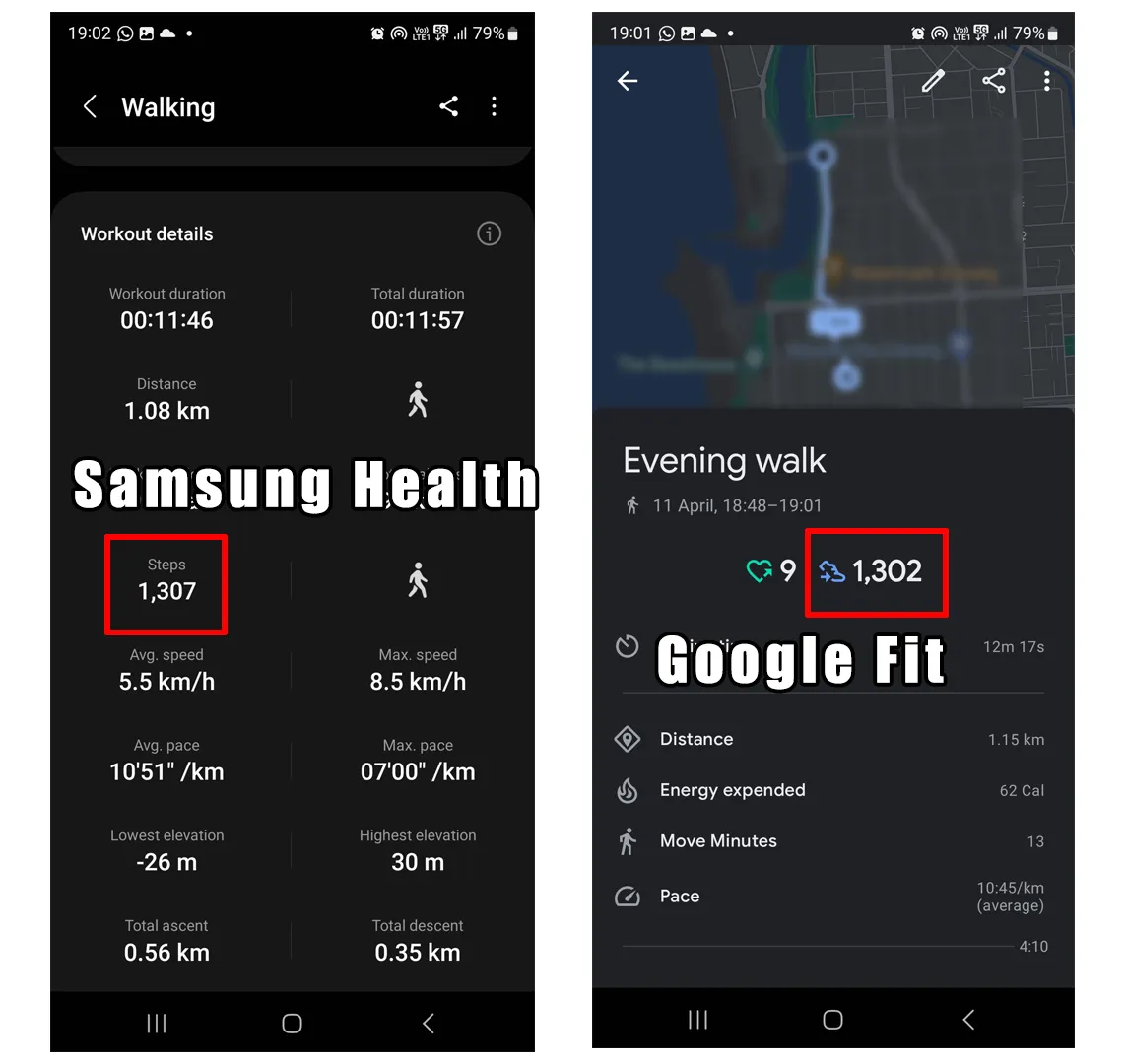
Both count steps and your active time (walk time). However, both count active time differently. In Samsung Health, your active time is your walking time.
In Google Fit, your active time is medium to fast-speed walk time. Slow-paced steps are added to the step counter, but active time is not calculated.
To test both, I went for a walk. Samsung Health recorded 1,307 steps, and Google Fit recorded 1,302.
Both showed almost the same walking time. However, the calorie data was different, which is covered below.
The difference in calorie data
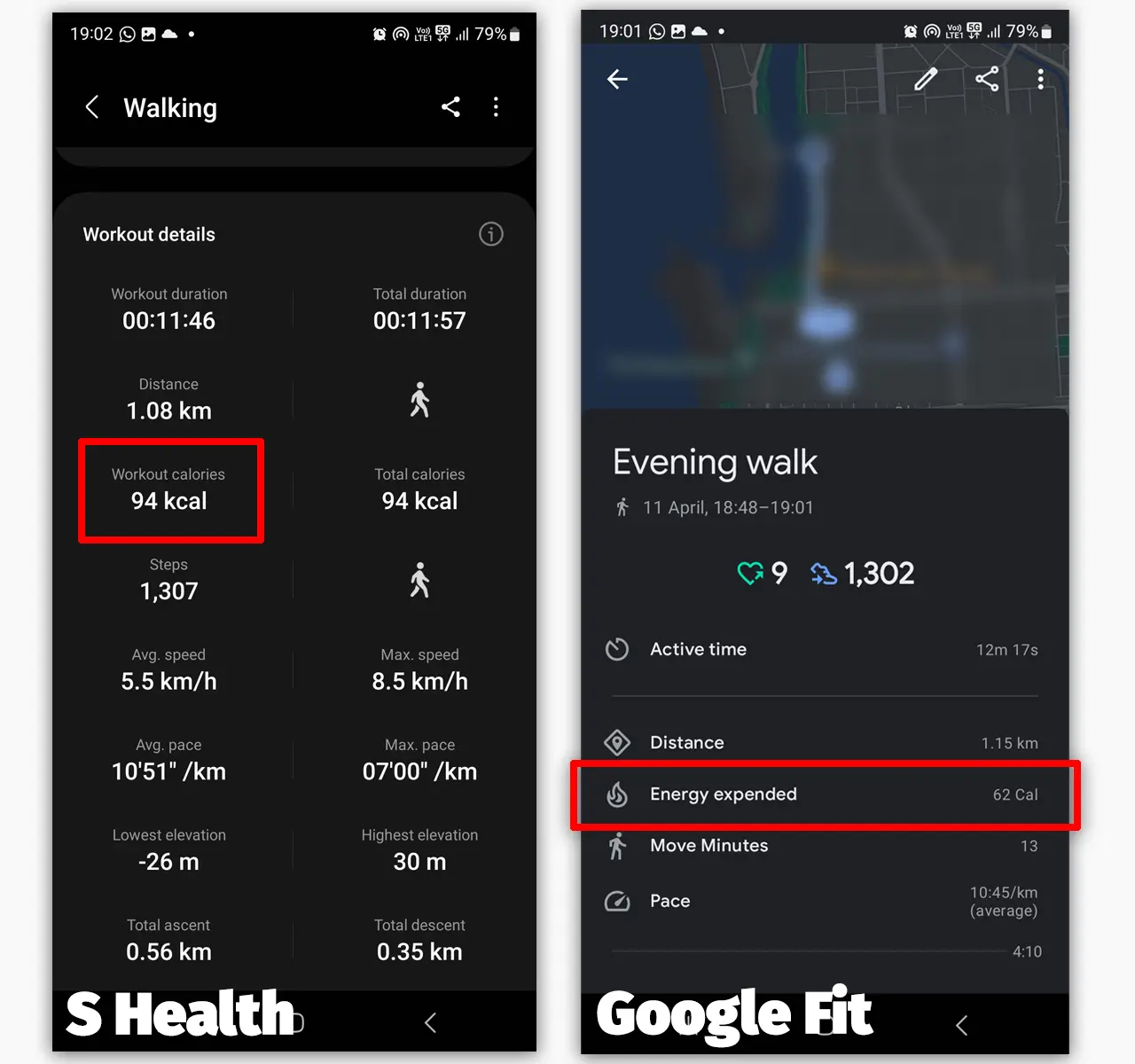
If you use both simultaneously, you will notice the difference in the calorie data. I tested Google Fit and Samsung Health and found that Google Fit shows more calories as the day passes.
This is because Samsung Health only counts your steps and workout calories, but Google Fit also tracks your Basal Metabolic Rate.
This means that as the day passes, you will see burned calories increasing.
Winner: Tie
Samsung Health vs. Google Fit: Exercises
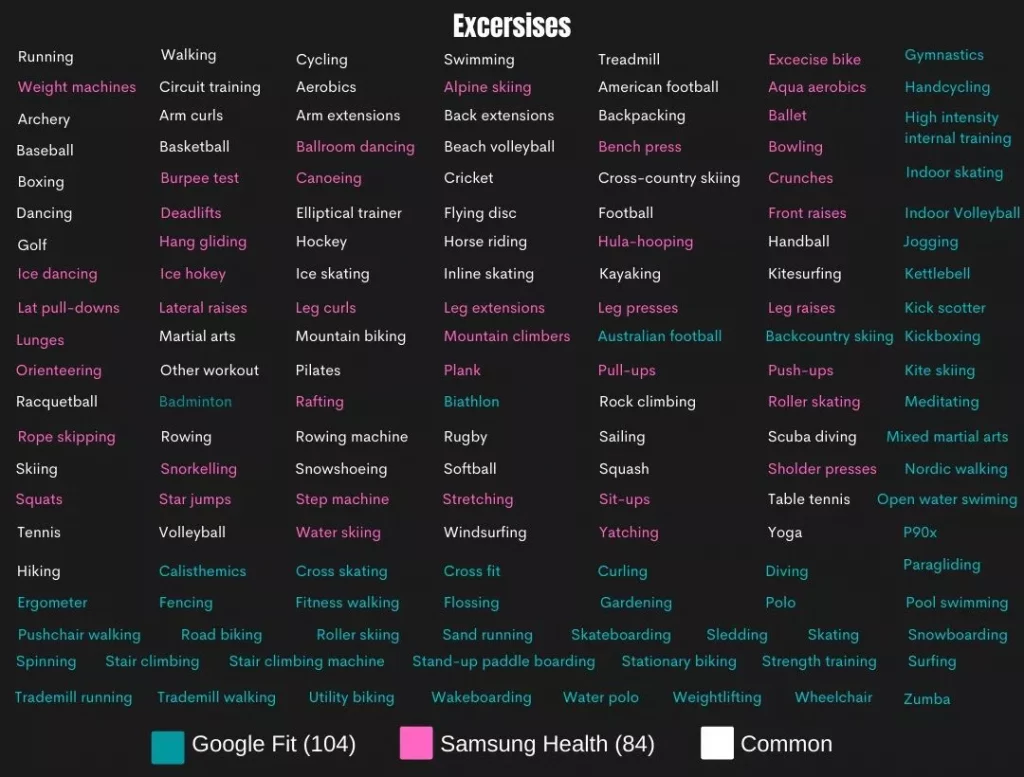
With over 90 workouts, you will always find the activity you want to track. Samsung Health comes with 98 activities. Google Fit comes with 104 exercises.
Both allow tracking activities and adding data manually. Also, you don’t need to take your phone while exercising or playing sports. Both can count data based on time.
One thing I like about Samsung Health is that you can search for workouts. Google Fit shows exercises alphabetically, but there is no option to search for a workout.
Winner: Tie
While you are here: Google Fit or Fitbit
Other tracking features
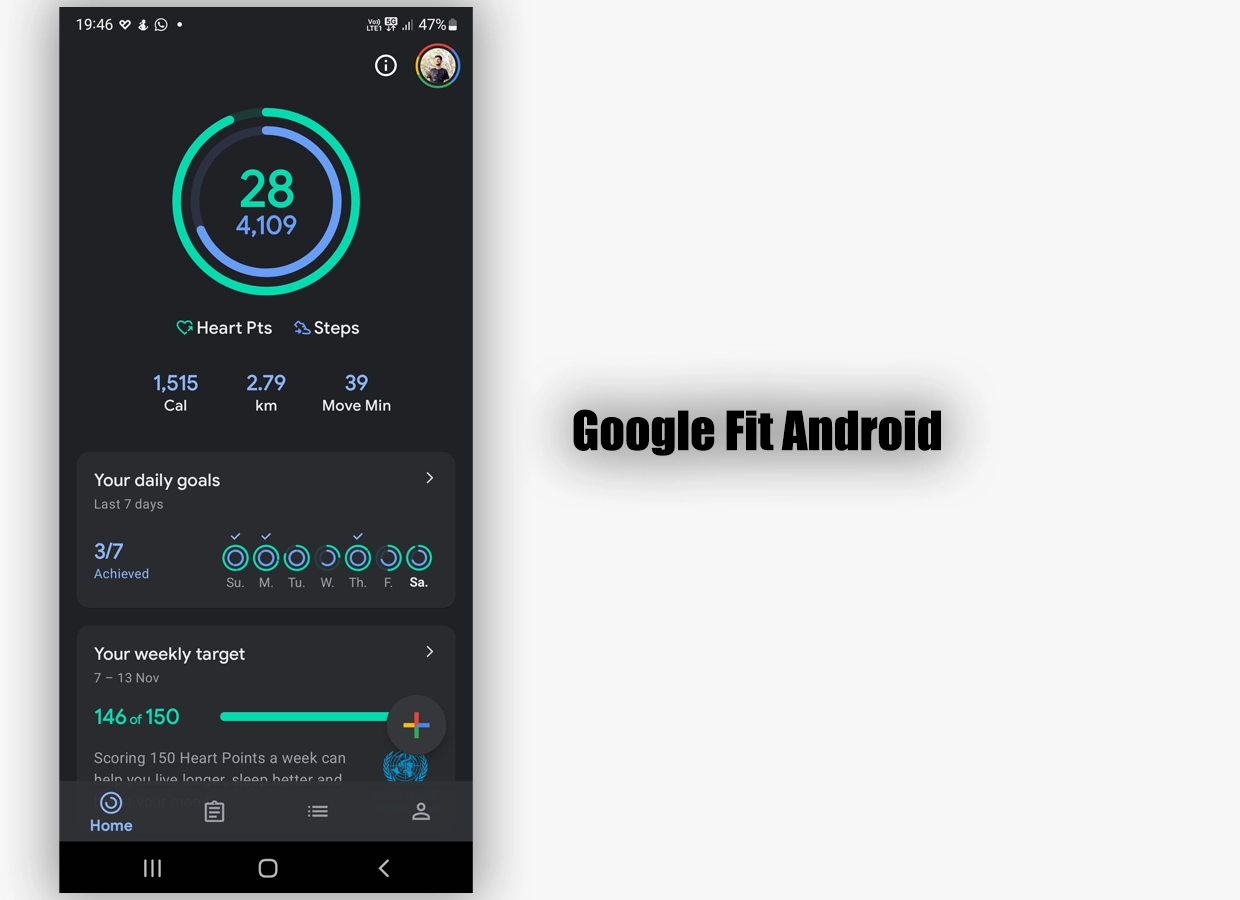
Let’s explore the data tracking options in this Samsung Health vs. Google Fit battle. Samsung Health comes with the following options:
- Food tracking
- Sleep tracking
- Water intake tracking
- Stress *
- Heart rate *
- Blood oxygen *
- Women’s Health
The star indicates that a Samsung fitness watch is required to collect the data.
The app also supports collecting your blood glucose, blood pressure, and weight, but you must calculate those using third-party devices.
Google Fit comes with the following:
- Sleep
- Weight (manual)
- Heart rate (device required)
- Blood pressure (manual)
Winner: Samsung Health
Sleep tracking
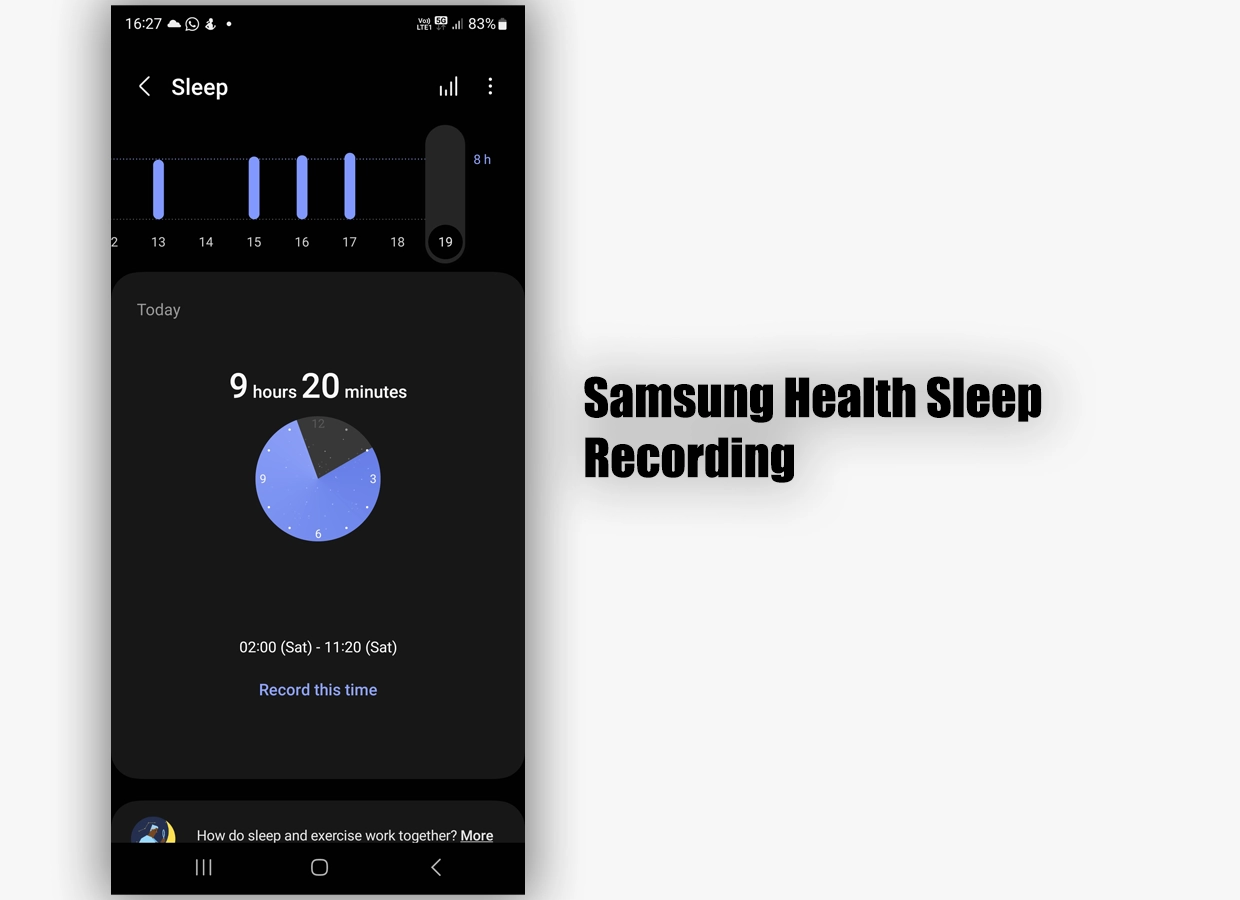
Samsung Health gets the round because once you have activated this feature, the app automatically tracks your time by monitoring the device screen-off timing.
It sends you a notification with the recorded time in the morning. Tap the notification to record the data.
The app also keeps track of your sleeping time and pattern to provide better insights. You will find a sleep consistency area to see the consistency of your sleeping time.
Also, with the help of a Galaxy watch, you can collect more sleep data.
Google Fit is not for your sleep, but it has those options. You can track your sleep daily, but the app does not remind you.
You can also set a scheduled time in your profile, and the app will show an additional section covering your daily sleep time and schedule.
Winner: Samsung Health
Challenges
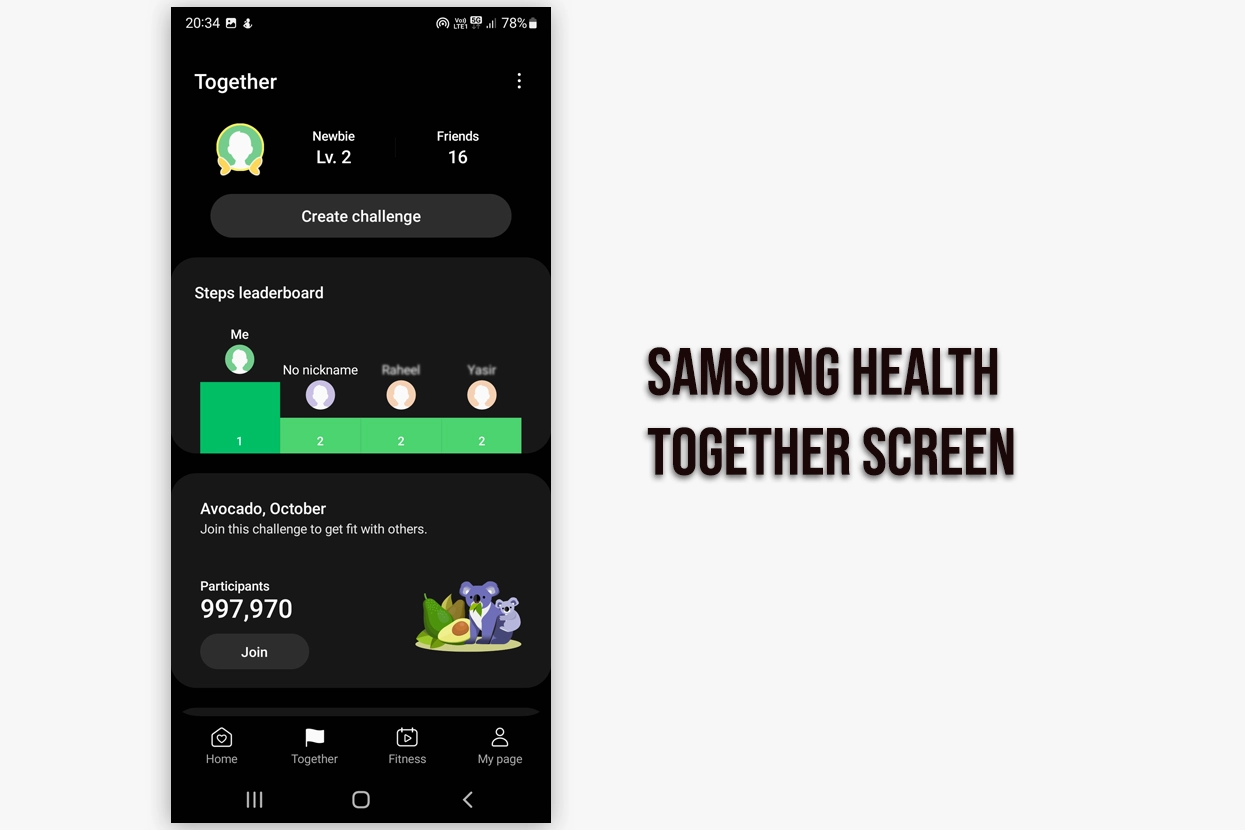
Both encourage you to push yourself, but both take different approaches.
Samsung Health has a together section to connect your app with your friends and challenge them.
Throughout the year, events are held worldwide, and anyone can participate if they need motivation.
Google Fit does not support group activities but has a Heart Points system. You get points by doing an activity. The more you do (walk, run, play sports), the more points you get.
The target is 30 points daily. The points are designed with the World Health Organisation’s help to make completing the recommended daily exercise easier.
Winner: Samsung Health
Additional features
Samsung Health vs. Google Fit covers some additional features of both apps next.
Samsung Health
Food data
The Food tracker is specific to Samsung Health. Its database has thousands of items with calories and other nutrient data.
As you add food, the app remembers and shows you the same items for quick add. Also, a history section is provided to see your food and search history.
Water intake
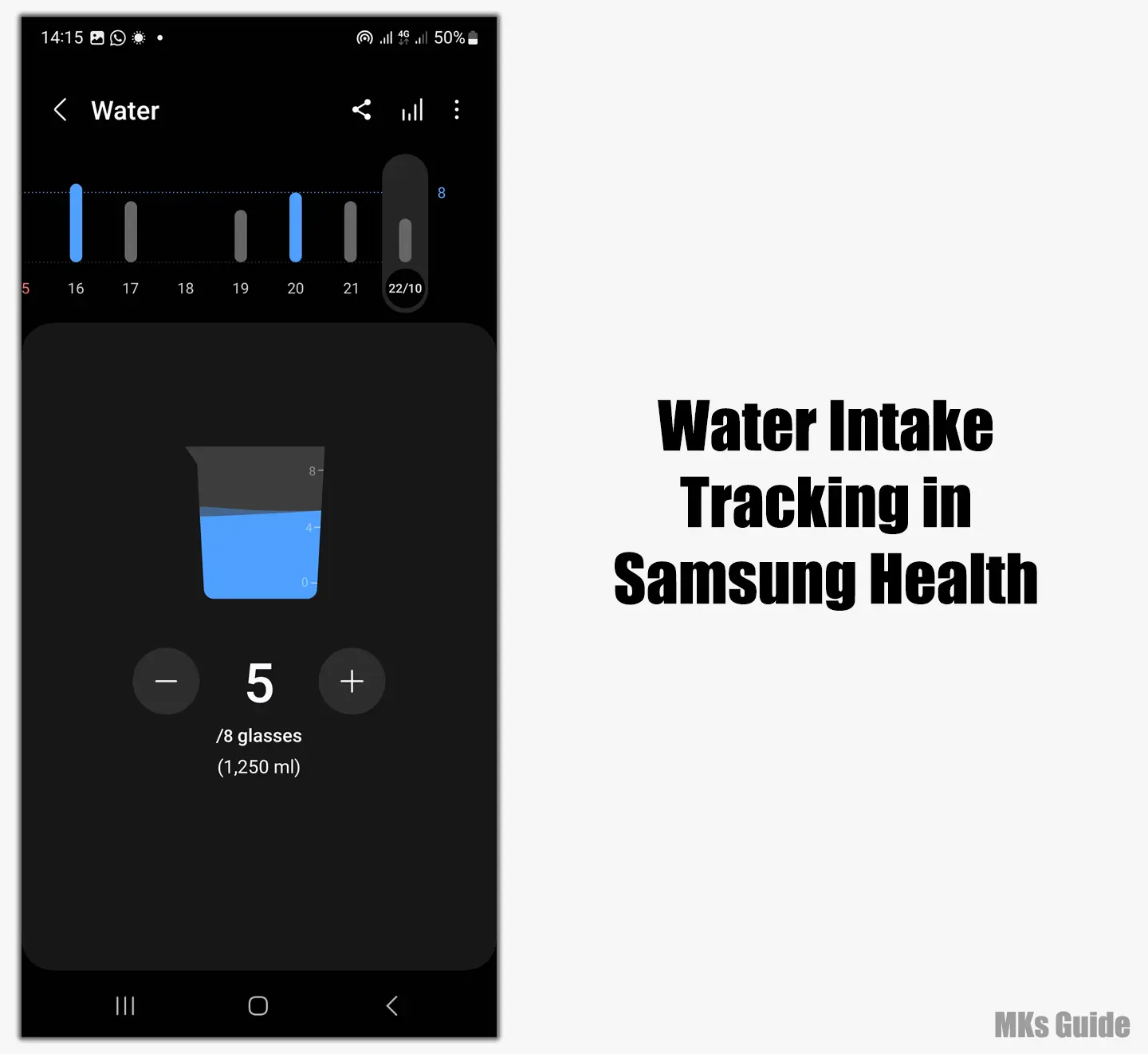
You can track water intake. The app does not send notifications; the option is on the main interface. You can also set a target and track your intake.
Fitness
Samsung Health has a tab called Fitness to find free exercise and mindfulness programs. Most of those programs have video-guided tutorials and controls to watch and follow at your speed.
Better workout assistant
You can set a target when you start a workout. The app guides you as you go and motivates you to complete your target.
Stats
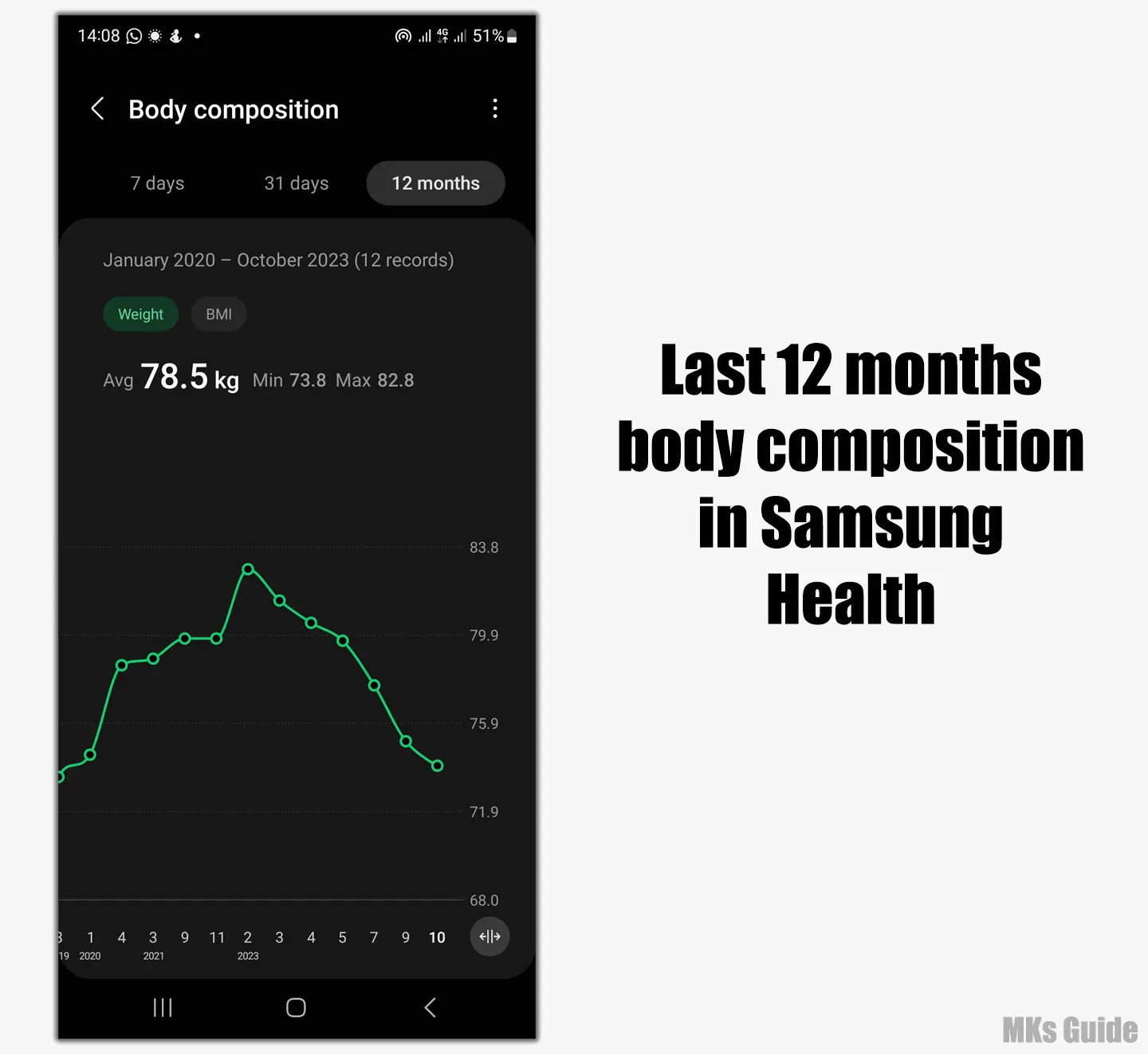
One of the great things about Samsung Health is that in each section, you can see the detailed stats.
For example, if you keep adding your weight, you can see the last 12 months’ data to your progress.
Achievements
Achievements such as the number of times the step target was achieved, most steps, longest duration, fastest speed, most floors climbed, etc., are stored.
Google Fit
Journal
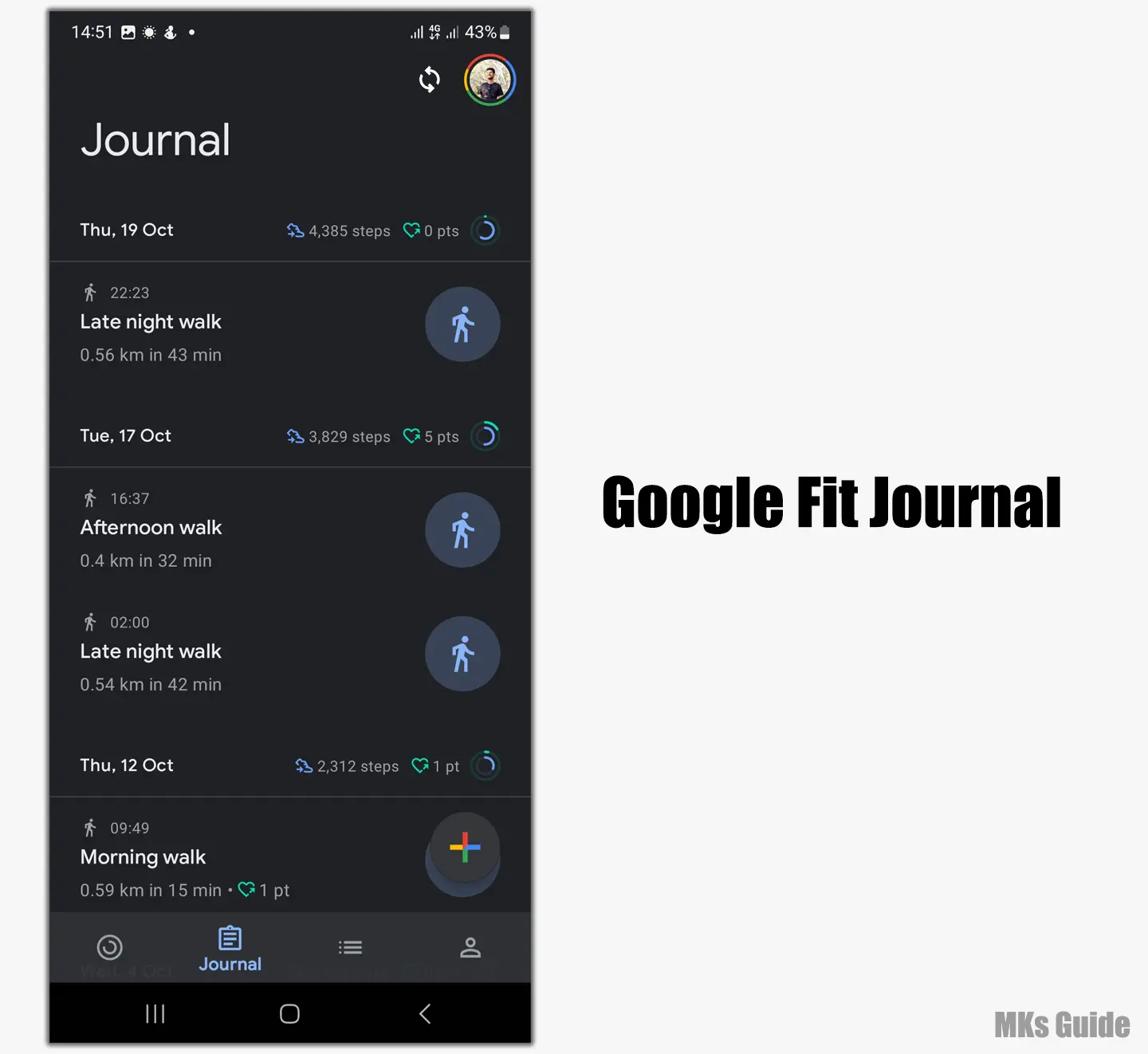
The Journal is the record of your activities. From Heart Points to weight to exercises, it sortes all your activities.
It even gives activities names. You can share each activity via the supported apps.
My recommendation and summary
You must understand that Samsung Health is a health and fitness app, while Google Fit is only a fitness app.
Samsung Health has more features and can be connected to apps/devices. It is a one-stop solution for maintaining and improving your health.
Google Fit can help count steps and calories, but that’s pretty much all it has. With that, it’s much easier to use.
Thanks for reading. I hope the information was helpful. Please share your thoughts in the comments so we can discuss more.
Samsung Health vs. Google Fit: Links
Madhsudhan Khemchandani has a bachelor’s degree in Software Engineering (Honours). He has been writing articles on apps and software for over five years. He has also made over 200 videos on his YouTube channel. Read more about him on the about page.
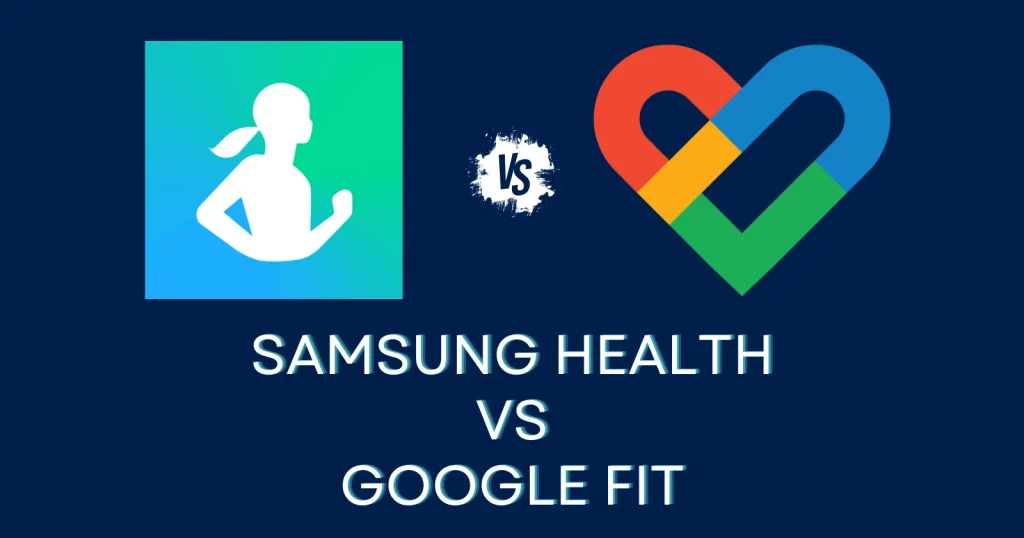
This is great! Exactly how product comparisons and reviews should be written. Thank you!
Thank you so much for the kind words.
Great comparison! Just wanted to point out that third party support is very important. Samsung for example supports third party but doesn’t allow steps which might be a deal breaker for some
Excellent Article! Thank you!
Glad you liked it, Chrystal.
Very good comparison of the two apps! I appreciate you taking the time you compare the two. One thing, I would appreciate more details into the 3rd party integrations as this is key for those that choose to live in multiple ecosystems when it comes to electronics.
Thanks, Stephen, for the feedback. I’ll look into this section and add more information.